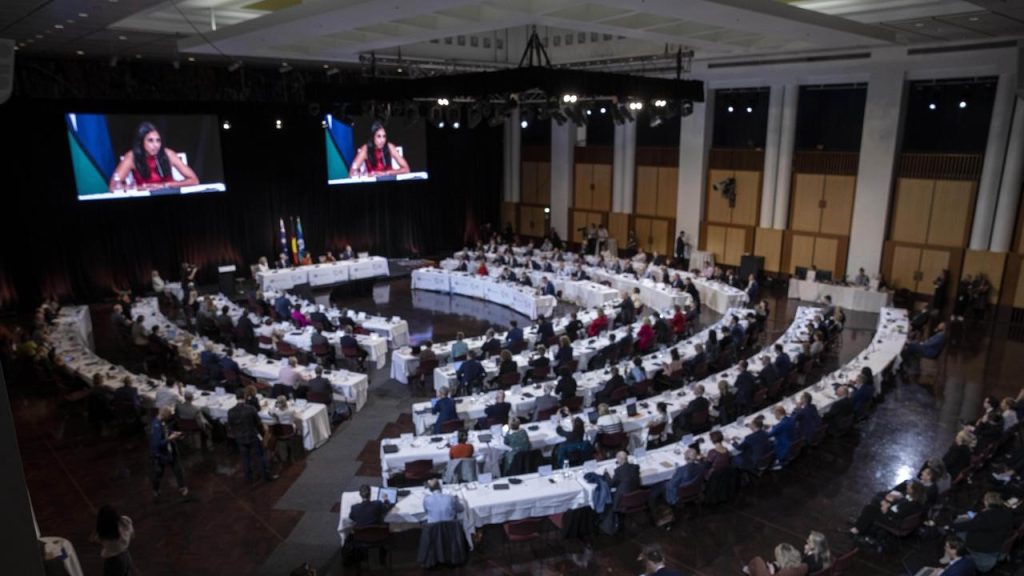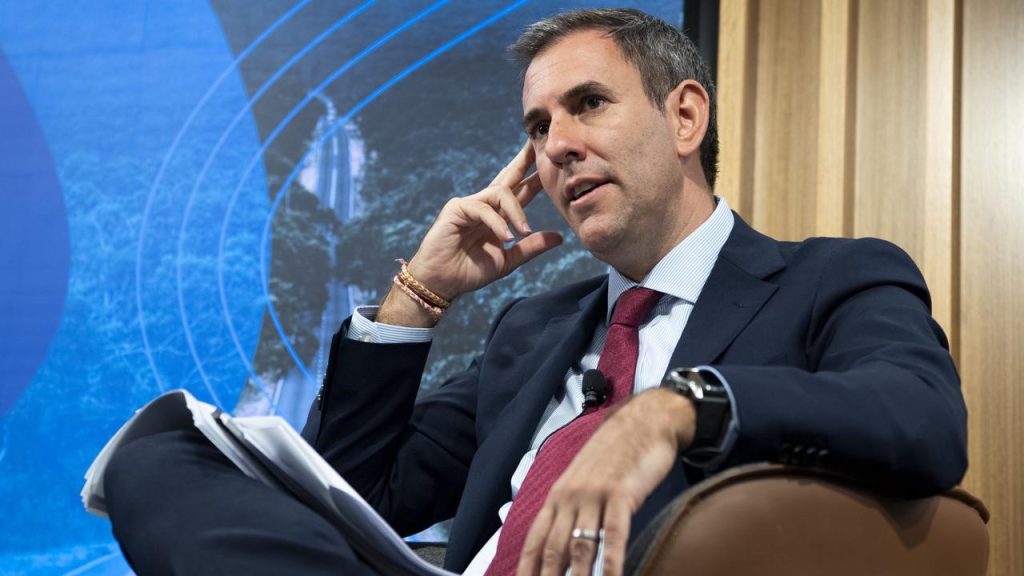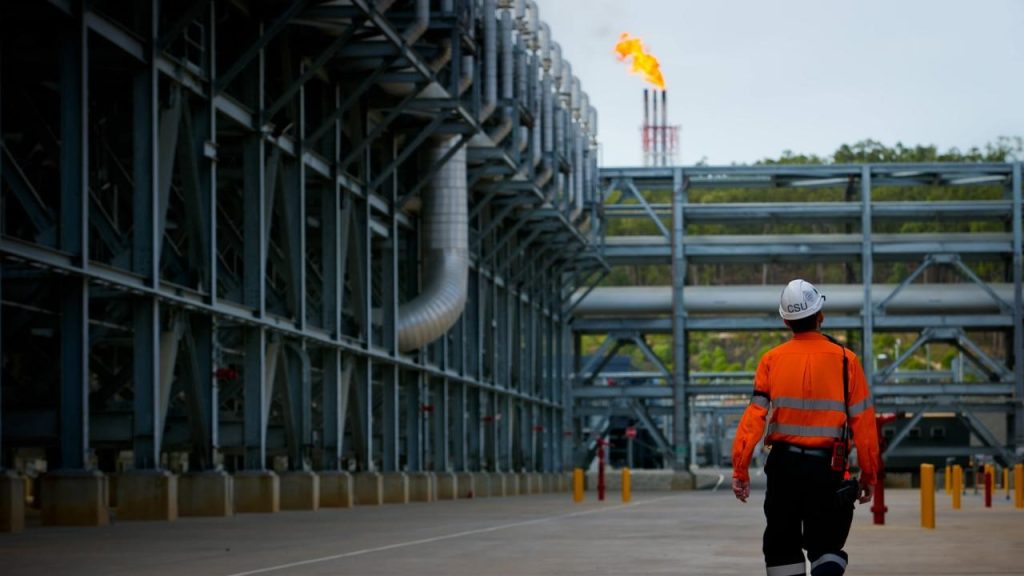Wednesday, January 4, 2023
Eye-watering gullibility and the prize for Dunce of the Year goes to:
By Janet Albrechtsen

janetalbrechtsenfollow@jkalbrechten

Any decent review of 2022 has a category for Dunce of the Year. Last year there were rich pickings, including, of course, in the individual division, Scott Morrison.
While the single-handed dopes have had plenty of attention, it’s time to recognise the hands down, length of the straight winner in the collective division.
Australian big business, we salute you. For eye-watering gullibility and downright stupidity in 2022, Australia’s biggest corporates cannot be beaten.
Their two strongest performances came at the Jobs and Skills Summit/multi-employer bargaining event and during the more recent energy crisis price-capping fixture.
However, they are not yet done proving themselves dunce winners, with remarkable feats of negligence and adolescent emotionalism set to be central to their agenda later this year when it comes to the Indigenous voice.
Before turning to some of the deeper reasons for this infestation of idiocy at Australia’s biggest businesses, it is worth revisiting their performance on multi-employer bargaining and energy price regulation.
READ MORE: Silence is the best weapon for business in ‘woke’ world | BCA blindsided by key government decisions | Labor exposed to future uncertainty | Albanese burns through business goodwill | Legislating for higher wages will always backfire | The buy now, pay later reckoning is long overdue
In fairness it should be acknowledged that they were played by the Albanese government: before the May election campaign Jim Chalmers specifically disclaimed any interest in multi-employer bargaining in any fields other than certain limited lower-wage sectors such as aged care.

Treasurer Jim Chalmers. Picture: NewsWire / Monique Harmer
Similarly, imposing permanent price regulation of gas, after the end of what was promised to be an interim fixing of prices to deal with a short-term issue, was an act of bad faith by the government. It snuck permanent price fixing into a mandatory code of conduct at the last minute when it thought nobody was looking.
So yes, in each case big business was blindsided by the Albanese government’s bait-and-switch exercise.
The naivety however, and the reason big business has won this award for distinguished service to gullibility, lies in the fact these con tricks, these government shell games, were entirely predictable. The surprise is that big business was at all surprised.
The legendary hardheads of Australian business, the likes of Don Argus, Hugh Morgan, David Murray, Leigh Clifford and Chris Corrigan, would have seen these deceptions coming a mile off. Modern business leaders not only fail to understand the nature of this government – who owns it, who runs it and whose interests it serves – but, for at least a decade now, they have taken their collective eyes off the economic realities while beguiled by various social causes.
The demise of the wise business leader was settled once boards became obsessed by abbreviations such as ESG, and allowed their strings to be pulled by HR departments that told them their first priority was to make themselves attractive to millennial recruits and by IR departments that cared only about the demands of activist industry fund leaders. No wonder companies are regularly outplayed by unions and other groups who hate big business.

That today the abbreviation IR means investor relations, not industrial relations, tells you all you need to know about the modern boards of our biggest companies. They know all about sustainability reporting and little about industrial relations, let alone tax or accounting.
In part this is because, over a long period, business, especially big business, has become embarrassed about itself, and indeed about capitalism.
The rising suspicion is that there are plenty of board members who would struggle to know who Adam Smith was, let alone have read his work or even summaries of it.
The likely reaction you would get to suggesting to a modern director that the invisible hand could have a benevolent effect on society is a grimace.
Stakeholders have replaced shareholders in the affections of many corporations. You don’t have to be Milton Friedman to think the pendulum has swung way too far.
Perhaps it is only appropriate that corporations are infected with identity crises. These days that seems compulsory.
However, it does mean that those running big corporations have failed to understand the importance of the chasm between the major political philosophies of today’s political parties.
Those philosophies do drive very different policy positions.
At the risk of oversimplification, which I acknowledge is a risk here, centre-right parties tend to preference individual liberties over collective rights, markets over central control and command, and flexibility over prescriptive regulation. A centre-left party such as the ALP should, by contrast, be expected to preference multi-employer bargaining over individual enterprise bargaining and price regulation over market pricing.
Nationals Leader David Littleproud says the Voice to Parliament won’t give Indigenous Australians a voice. “The… reality is for people in regional, rural and remote, Indigenous Australians in there, they won’t have a voice,” Mr Littleproud told Sky News host Caleb Bond. “They’ll have a representative that’ll cover hundreds More
Moreover, as we have seen countless times in areas from union rights to superannuation disclosure to litigation funding, the ALP unashamedly abides by the first principle that you should dance with the one who brung ya.
By refusing to make political donations or take part in political debates, corporate bosses thought they could swan around at the Jobs and Skills Summit and join negotiations about energy price regulation and secure great outcomes as neutral players.
They were deluding themselves. This bunch of rubes and naifs now has no friends in politics and must accept whatever gruel is dished out to it.
A constitutionally entrenched Indigenous voice is the latest upcoming test for the big corporates.
Not a single corporate has admitted to doing the appropriate due diligence, or getting legal advice before signing on, holus bolus, to the public campaign for the voice. Like lovesick teenagers they have been seduced by the vibe of it.
If, this year, our big companies devote the sort of money – from shareholder coffers – needed to get the voice across the national referendum line at a grassroots level, they can expect a backlash from the many Australians who feel they are being forced into accepting a two-tier Australia permanently divided by race.
These same grandstanding chief executives and board members can’t say they were not warned.
All the signs are there of yet another bait-and-switch trick from Labor and Yes activists that will damage the interests of shareholders.
The Australian’s Legal Affairs Contributor Chris Merritt says “democracy is more than regular elections and government by the majority. It requires equal treatment by government of all citizens”. “The way the voice would work, Indigenous Australians would have two options if they want to influence public policy… they can More
The nation’s corporate bigwigs – men and women who ask for legal advice before they decide to switch coffee brands at head office – seem to believe the voice confers no special rights on anyone and does not create a constitutionally entrenched right of consultation.
A first-year law student could tell them the High Court can, and very likely will, give the voice de facto privileges over many areas of their businesses.
It is impossible to feel sorry for the dunces who run some of Australia’s biggest companies.
They have systematically abandoned their friends along with founding principles in pursuit of popularity. They deserve to reap what they sow.
The problem is that shareholders end up paying the price for this growing corporate folly. Maybe 2023 will be the year when shareholders finally tire of boards and management using company funds to advance personal political agendas.
COLUMNIST
Janet Albrechtsen is an opinion columnist with The Australian. She has worked as a solicitor in commercial law, and attained a Doctorate of Juridical Studies from the University of Sydney.
